Please sign up for one workshop before and after the lunch. When the limit of the workshop is reached, the choice will become unavailable.
For more information about the workshops:
– Discussion Set 1 (11:15 – 12:45)
– Discussion Set 2 (14:00 – 15:30)
Check the website for the full programme of the symposium
More information about the speakers, moderator, artists and core team
Workgroup information
Workgroups Discussion Set 1:
1A. Belonging Matters
Belonging matters, fostering stewardship between users, communities, and landscapes. Through its tangible nature, material can nurture meaningful relationships among stakeholders, serving as more than just a resource in design; it becomes a communicative instrument. The Linen Project revives local flax production, exploring every step of linen-making, both manually and industrially, to reimagine economic, social, and cultural paradigms. In Land & Hand (by Ketter & Co), materials and crafts reconnect people with the landscape, preserving historic knowledge where craftsmanship once mirrored its surroundings – reed, clay, stone and wood, all sourced within walking distance. Belonging Matters.
Willemien Ippel is co-founder and director of Crafts Council Nederland, a platform for creative craftsmanship, facilitating the transfer of knowledge and skills and preserving traditional craft techniques for the future. She is also co-initiator of The Linen Project.
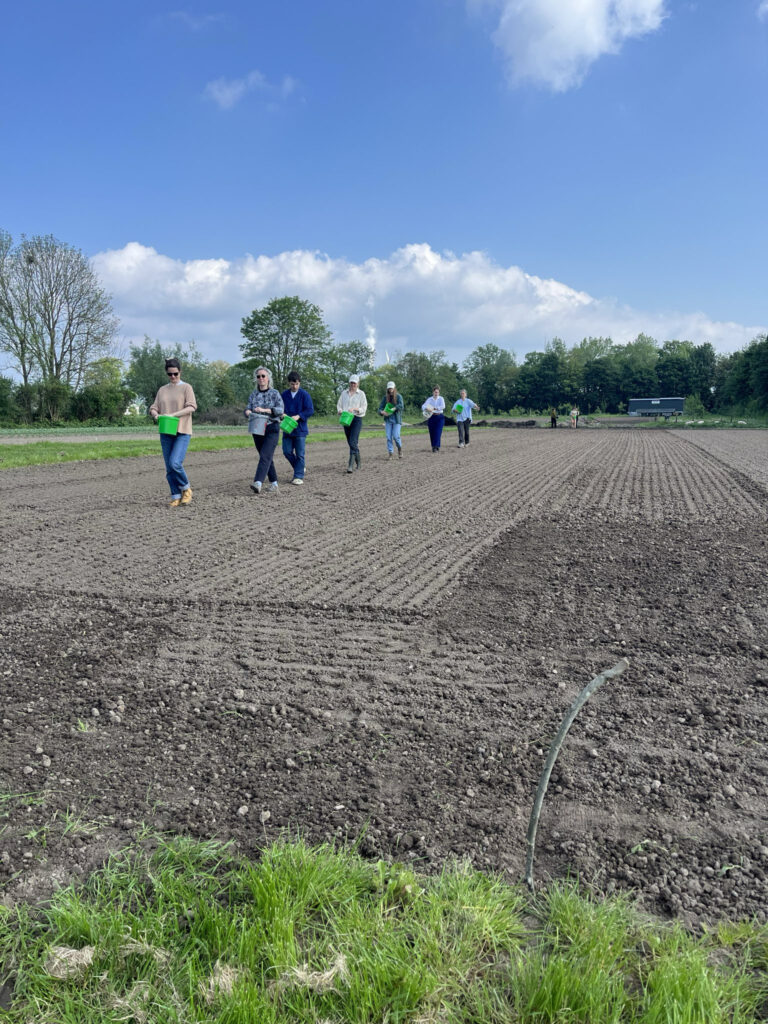
Irene Fortuyn is an artist, researcher, lecturer at Royal Academy of the Arts in The Hague head of department of Leisure of the Design Academy Eindhoven between 2000-2023 and founder of Ketter & Co, a collective fostering sustainability. Initially her practice focused on art installations in public space and developed into a collaborative practice exploring the socio-material conditions of site-specific locations by posing critical questions.
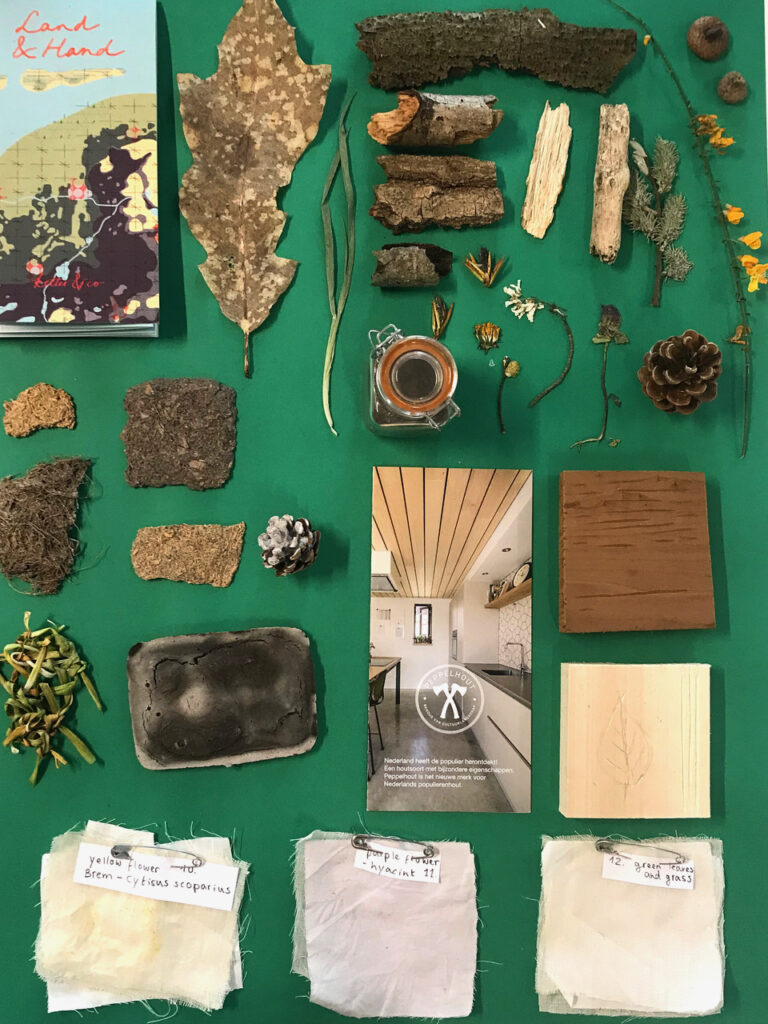
Moderator & co-curator: Annemarie Piscaer
1B. Gleaners and the Worms
The multidisciplinary collaboration Gleaners and the Worms study inclined bodies and earthworms. Together they develop practices coming closer with earthworms and observing regenerative postures. Eyes Closed I See invites for the gaze to touch, over a landscape of pages covering the soil and inviting connections with its livings. Holding and being Held, is a dance with bodies wearing very long aprons. ‘Are humans worms with aprons?’ Bodies of roots and waterfall, we propose an experience of reciprocity. This session will take place partly outdoors. Please check the weather conditions and dress accordingly.
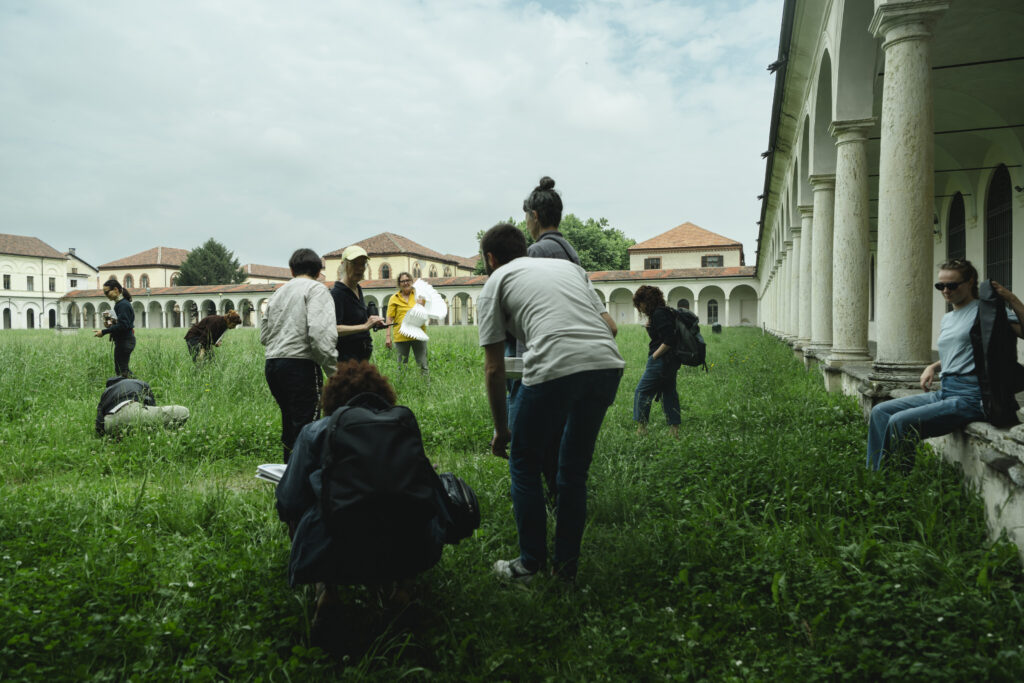
Emilie Gallier is a dance artist, researcher at ATD and AHK and a gardener based in Leiden, NL and Les Minières, FR. Her multimodal practice shapes her writing and performance-making with soils, humans, and other animals. With her brother, living-soils gardener, Emilie co-founded Les Minières, where gardening and art-making gather.
Nienke Terpsma is a visual artist and book designer based in Rotterdam. Together with Rob Hamelijnck she initiated the travelling artist-(maga)zine for non-academic research Fucking Good Art. FGA appears irregularly, mostly on paper but also as radio, online, or spatial installations from local contexts and in dialogue with other makers and thinkers.
Nina Boas is a visual artist and theater maker based in Amsterdam. Her work combines rituals, visual performance art, and theater with a focus on healing, which is expressed in various ways.
Moderator & co-curator: Laura Cull Ó Maoilearca
1C. Oyster Heaven & Regenerative Loops
Oyster Heaven regenerates oyster reefs using a business model based on ecological impact. Working for big clients, they have developed a holistic, science-based and scalable way to clean oceans and restore marine ecosystems. Using biodegradable, low-cost and ‘mother reef’ bricks as scaffolding on the seabed, they support oysters as they grow into fully formed self-sustaining reefs. By putting regeneration first, Oyster Heaven clearly has a direct impact on marine ecosystems. Does their work also have influence on the business models of their clients?
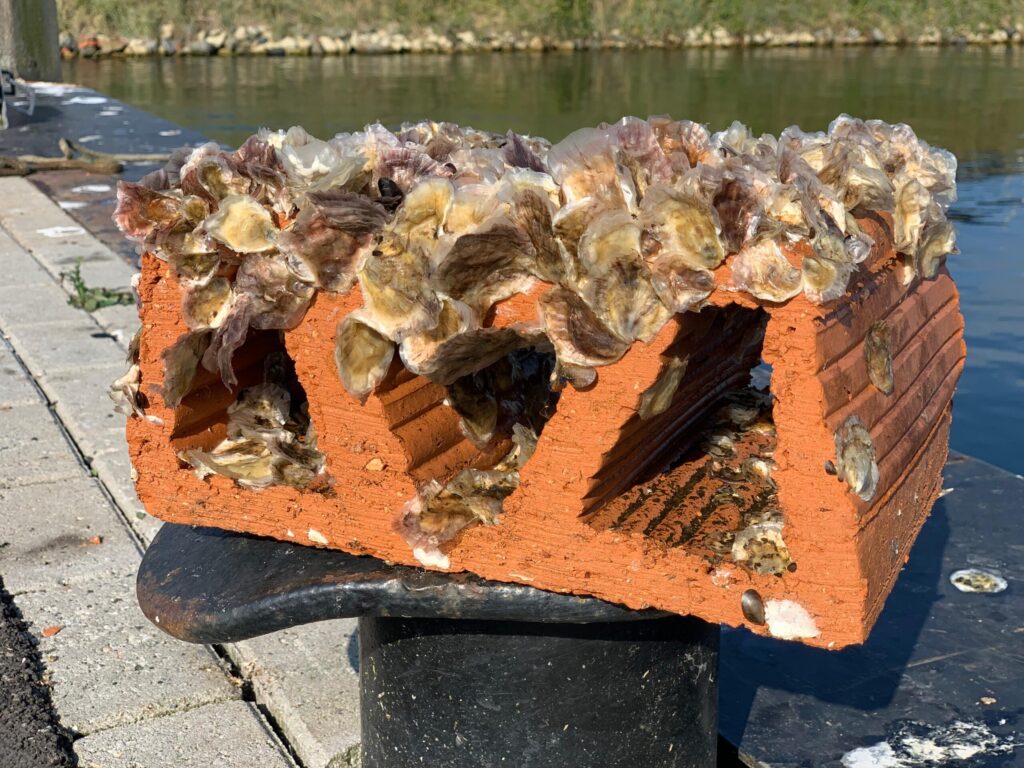
George Birch has an academic background in marine ecology and founded the regenerative company Oyster Heaven in 2021. Previously, he worked in the unusual combination of conservation with the Blue Marine Foundation and asset management with Janus Henderson, working on sustainable investments. At Oyster Heaven, these worlds come together.
Moderator: Manuela Zammit
1D. Financing Ecological Recovery through Houses for Humans
At De Kleverbergh, Vereniging Leven met het Land is working on the realisation of new houses for their members. Their aim is to develop a practice in which the design, construction, use, financial logic and the end-of-life of the dwelling places-to-be all contribute to the ecological and social health of the more-then-human community. How to make sure that financial structures help to realise other forms of value?
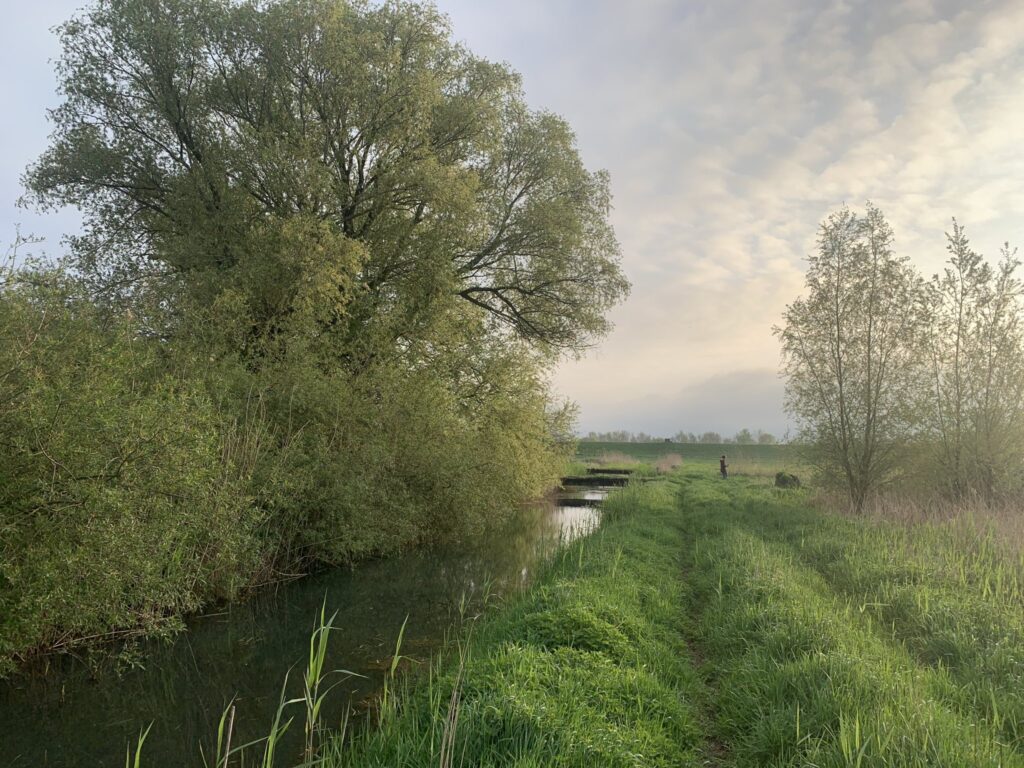
Marcel Heskes is transition maker at Squarewise, a transition agency for organisations in agriculture and building that work towards actual sustainability. He brings a background in business and finance and is here as member of Vereniging Leven met het Land, that transforms De Kleverbergh into a regenerative multispecies community.
Selçuk Balamir is a designer, researcher, and organiser who works on commoning practices, post-capitalist transition and eco-social justice. He is a founding member of the housing cooperative De Nieuwe Meent in Amsterdam and is currently researching the creative reuse of fossil energy infrastructure in the just transition
Moderator: Klaas Kuitenbrouwer
1E. Practicing Living Systems part 1 (Students)
This session invites students to reflect on and discuss on how to practice regeneration. How do you integrate regenerative considerations into your design processes? What are the species, places and perspectives to take in account? What does it entail to work as part of living systems? Judith van den Boom will share perspectives on living system thinking, ecocentrism and how we consider the knowledges part of regenerative design. Risk Hazekamp will share some key insights from their research nearby Cyanobacteria and what it means to care for a single celled micro-organism. This is an invitational session to think deeper through the relational foundations, ecological and ethical approaches and vocabularies. Students are invited to reflect on these principles and explore how they can shape their own considerations towards developing a living system practice.
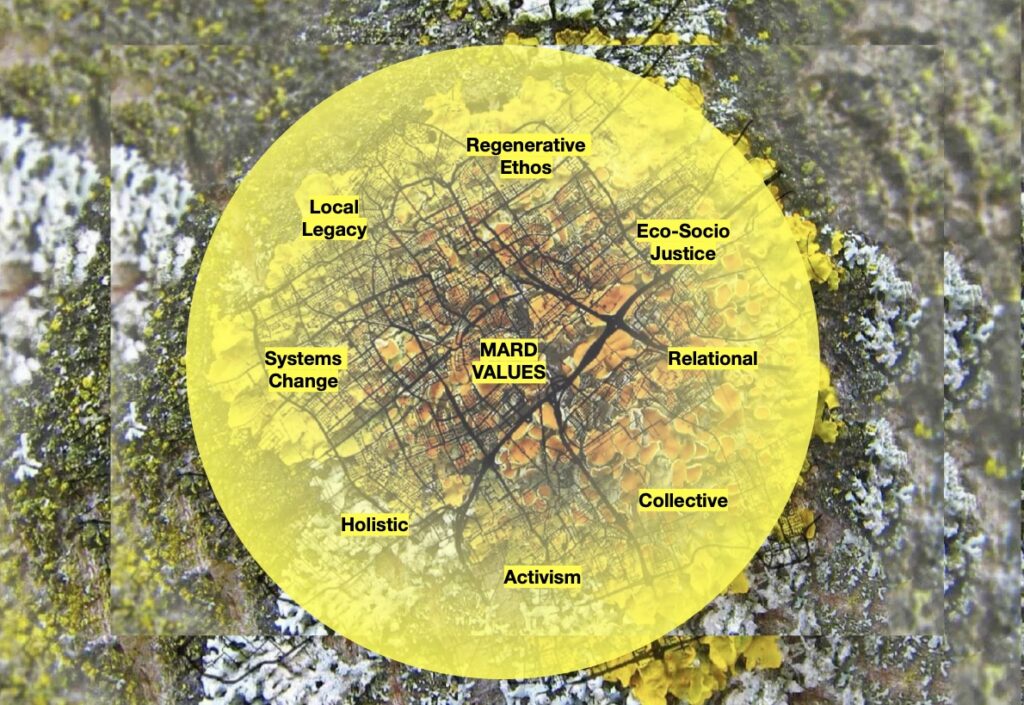
Judith van den Boom is the course leader of the MA Regenerative Design (MARD) at Central Saint Martins, UAL (UK). This interdisciplinary online course teaches students around the world through design, ecology, and anthropology, connecting scientific, artistic, and traditional knowledge and methodologies. MARD is focused on developing regenerative practices as a connected supportive network, building positive impact and long-term visions. MARD aims to support and engage in ecosystem restoration through developing regenerative practices, projects, and collaborations.
Judith is a designer, field practitioner, collaborator and researcher developing her PhD at Manchester School of Art on shifting from ‘resource to partner’, developing regenerative frameworks that foster a deeper understanding of ecological design practice and support working situated and collectively within communities, engaging as part of the land and adopting a whole-systems approach.
Risk Hazekamp (they/them) is a Dutch inter-dependent visual artist, researcher and art educator. Through a combination of personal activism, decolonial praxis and analogue (currently micro-organic) photography, visual intersectional processes are developed to change existing systems. As of 2023, Risk started their Professional Doctorate research entitled: Unlearning Photography: Listening to Cyanobacteria.
Moderator: Ingrid Commandeur
1F. Facing the Elephant in the (class)room of Regenerative Higher Art Education
What does regeneration truly mean? This session explores the principles of regeneration through an indigenous lens of resilience. A shift towards regeneration is a radical challenge of societal and cultural structures and requires each of us to face some deeply embedded convictions along the way. Creative practices are tools to envision what we can move towards. What other skills are necessary and what role does higher art education have to play in becoming regenerative?
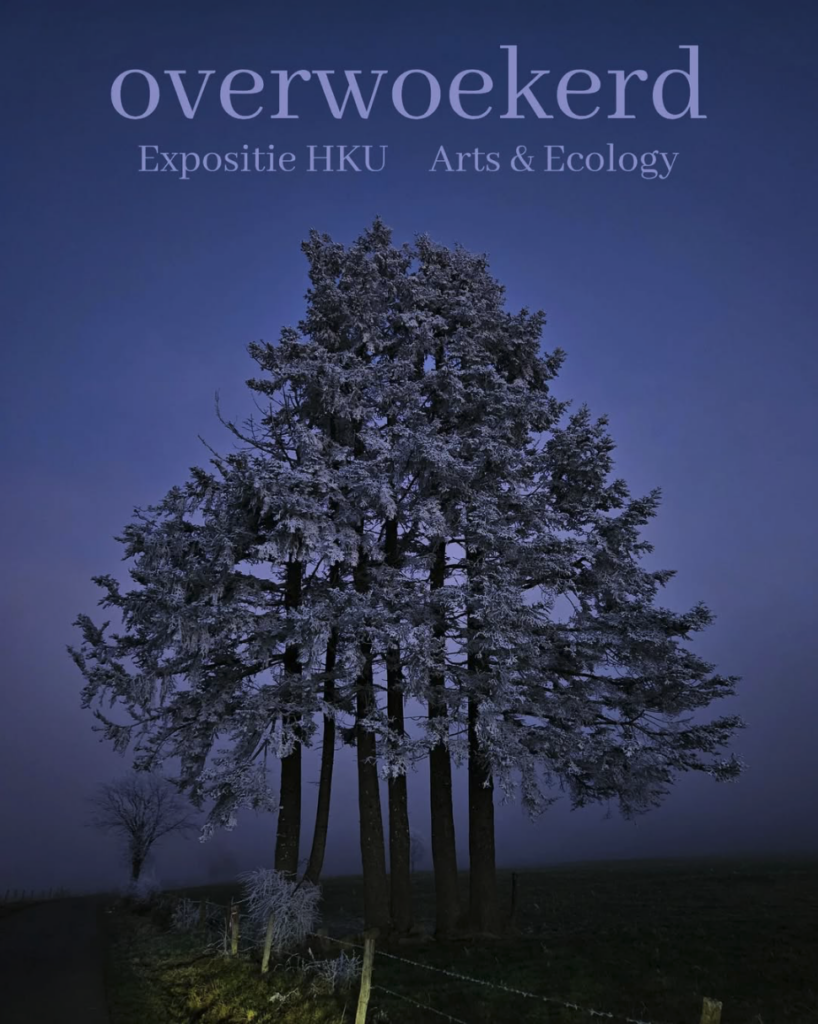
Anke Jongejan is a senior lecturer and researcher at School of Design HKU who recently co-developed a minor in Arts & Ecology. She focuses on the knowledge created in the creative process and how the secret forces of creativity, reciprocity and interconnectedness can be a blueprint for being ecological.
Henrike Gootjes is an artist educator and regenerative strategist dedicated to fostering systemic change through artistic methodologies. Her new book, Be-coming Regenerative, written as both a personal and collective manifesto, is a book of mourning, harvest, and action: an invitation to join the movement of the generation of Regeneration.
Moderator: Anthony Heidweiller
1G. Cross-Pollination and Collective Action
Collective creativity shows us a roadmap to regenerative practice. Ecosystemic ways of thinking and learning allow us to co-evolve and co-create in a sustainable and interconnected way. In the context of higher art education, methods for pollination and collaboration foster in both students and teachers a sense of agency which allows them to contribute to a decolonial, degrowth alternative system through their creative practice. This session offers an experience of how exploring collective values creates opportunities for mutual aid.
Wander Eikelboom is a researcher with a background in Critical Humanities. He works as a tutor and researcher at the Communication and Multimedia Design School in Breda. Wander published on critical design practices, participatory media cultures, and embodied experiences. His current research explores more-than-human-design practices and ecosystemic ways of learning in the post-Anthropocene era.
Bas van den Hurk is part of the collective, It is part of an Ensemble, a group of twenty artists, theater makers, actors and performers. They research the tension between the social process of living together and the autonomous qualities of the resulting works. He is a tutor and researcher at St. Joost School of Arts & Design.
Juha van ‘t Zelfde is a Finnish-Dutch artist, organizer and teacher living in Amsterdam-Noord. In his work, he explores the revolutionary potential of collective creativity. As an autodidact DJ, filmmaker and anarchist, clubs are his art school and protests his PhD.
Moderators: Collective
Workgroups Discussion Set 2:
2A. Permacomputing is both a concept and a community of practice oriented around issues of resilience and regenerativity in computer and network technology inspired by permaculture. In this session, Aymeric Mansoux will introduce his research on permacomputing, a field of convergence between technology, cultural work, environmental research, and activism. Permacomputing challenges digital practices driven by maximization, hyper-consumption, and waste, advocating for a more sustainable approach. Following his presentation, Loes Bogers will lead a conversation that encourages participants to imagine concrete starting points to engage with computational culture in less harmful and extractive ways.
Aymeric Mansoux has been messing around with computers and networks for far too long. He is lector at the WdKA, Hogeschool Rotterdam. Recent collaborations include What Remains, an 8-bit Nintendo game about whistleblowing and the manipulation of public opinion about the climate crisis; LURK, a server infrastructure and collective to host discussions around net/computational art, culture, and politics; and the Permacomputing wiki where a growing number of contributors document and discuss alternatives to extractive mainstream computation.

Loes Bogers is a design researcher, organizer and educator interested in transdisciplinary practices related to critical making, hacking, and DIY ethics. She holds an MA in Interactive Media from Goldsmiths and a BA in Media & Cultural Studies from the University of Amsterdam. She co-edited The Critical Makers Reader: (Un)learning Technology. Loes coordinates the Interaction Station at Willem de Kooning Academy, is affiliated with its Research Center, and is a core member of Hackers & Designers.
Moderator: Loes Bogers
2B. Gardening tactics
Many art practices, including art educational institutes, have adopted gardening as part of their practice. In what ways can gardening be an art and artistic tactic? And in what ways can this gardening tactic be regenerative? What examples are there, what lessons learned can be shared and what blind spots are there to be aware of? In this session, we gather a few artistic gardening projects to get a grip on gardening as a regenerative creative practice. This session will take place partly outdoors. Please check the weather conditions and dress accordingly.
Martijn van Gessel is the initiator of Green Autonomous Zone and a lecturer and researcher at HKU (Research and Innovation/Music & Technology). His focus is on manifest and action, researching and developing perspectives on the ecological crisis and initiating (educational) activities in the field of art and ecology. This has the aim of making the ecological crisis personal, tangible and local through gardening in public space as artistic research.
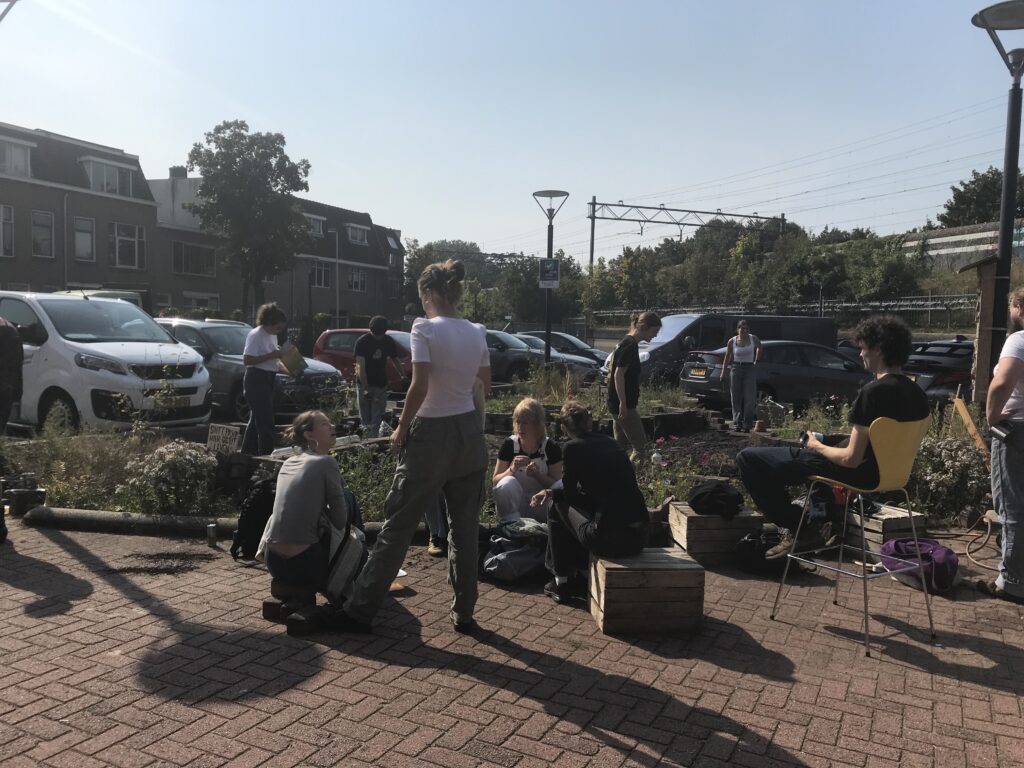
Jonmar van Vlijmen is from the artist collective De Onkruidenier, which investigates historical, cultural and potential transformations of nature and its potential for human evolution. As ‘ecosystem futurists’, they speculate to arrive at new interpretations of the relationship between humans and (urban) nature, both above and below sea level. The Shadow Garden is their testing ground for new nature/culture relationships.
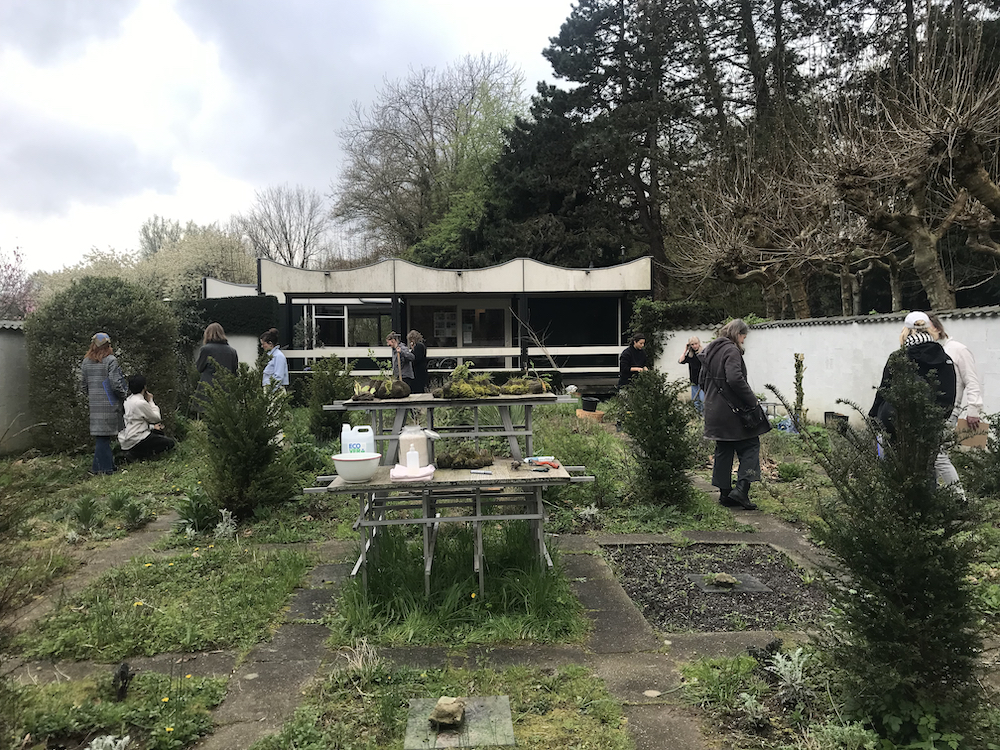
Thom Bindels from Amper Design works in an investigative manner towards a dialogue with the natural landscape to make the mutual dependence between people and their environment tangible again. He turns the abstract climate fear into a physical expression that reconnects the body with matter. For example, through the AmphiTerp project.
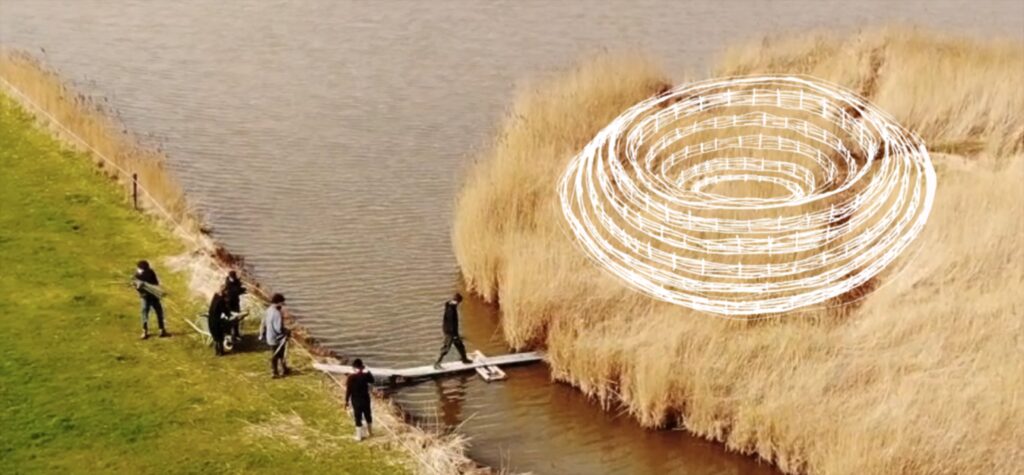
Moderator: Martijn van Gessel
2C. Beyond Sustainability
In Voorbij duurzaamheid (Beyond Sustainability), Shivant Jhagroe argues that thinking and acting through the lens of ‘sustainability’ serves as a green pacifier, preventing radical and just systemic change. Belief in the sustainability myth obscures how deeply sustainability is intertwined with colonialism, capitalism, and social exclusion. He presents a passionate argument, supported by examples, for a new political language and imagination. He paves the way for an eco-just society, where a compassionate duty of care for the Earth and one another takes centre stage.
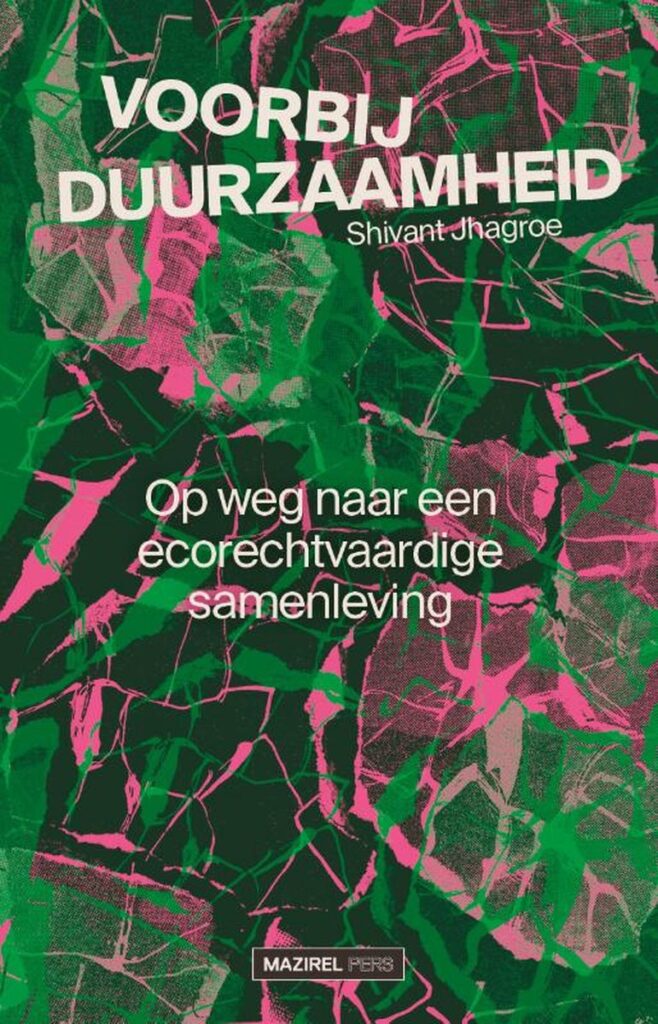
Shivant Jhagroe is an Assistant Professor at the Institute of Public Administration in Leiden. His work focuses on marginalised and more-than-human actors including racialised and low-income groups, ecosystems, and algorithms in policy and politics. His research aims to develop strategies for more sustainable, democratic, and just futures.
Moderator: Manuela Zammit
2D. Calibrating the Regenerative Label of New Store
The regenerative label helps to assess the level of regenerative performance of materials, products or services on offer at New Store of Zoöp at Nieuwe Instituut. It asks how different phases of the life cycle of products or services contribute to socio-ecological health: growing raw materials – producing artefacts -transport / logistics – transactions / finance – use, and end-of-life. The label should help to compare strengths and weaknesses of different ways to make things. How can it support designers that want to work regeneratively?
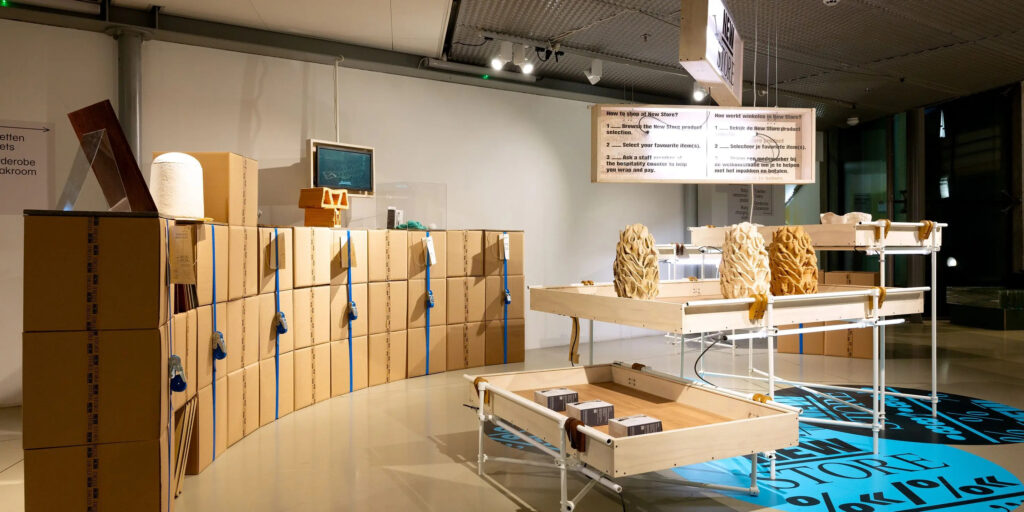
Klaas Kuitenbrouwer is a senior researcher at Nieuwe Instituut and director of the Zoönomic Institute. With backgrounds in history, the arts, digital culture and DIY communities, he works at the intersection of ecology, culture and technology. At the New Store in Nieuwe Institute, he develops the regenerative label – a means to assess the regenerative performance of various products and services.
Moderator: Yolande Sep
2E. Practicing Living Systems part 2 (Educators)
This session invites educators to reflect on and discuss teaching regeneration. How do we integrate regenerative principles into design education across institutions? What does it entail to work as part of living systems? Judith van den Boom will share perspectives on living system thinking, ecocentrism and how we consider the knowledges part of regenerative design. It is an invitational session to think deeper through the relational foundations, ecological and ethical approaches and vocabularies. During this session educators are invited to reflect on these principles and explore how to from a place-based living systems mindset.
Judith van den Boom is the course leader of the MA Regenerative Design (MARD) at Central Saint Martins, UAL (UK). This interdisciplinary online course teaches students around the world through design, ecology, and anthropology, connecting scientific, artistic, and traditional knowledge and methodologies. MARD is focused on developing regenerative practices as a connected supportive network, building positive impact and long-term visions. MARD aims to support and engage in ecosystem restoration through developing regenerative practices, projects, and collaborations.
Judith is a designer, field practitioner, collaborator and researcher developing her PhD at Manchester School of Art on shifting from ‘resource to partner’, developing regenerative frameworks that foster a deeper understanding of ecological design practice and support working situated and collectively within communities, engaging as part of the land and adopting a whole-systems approach.
2F. Living Material Practice
Art and design disciplines often involve the use of materials and processes that can have significant environmental impacts. Which then begs the question of what regenerative making practices entails. There is a need for non extractive ways of making, collaborating, growing and living. In this session, we look at the HOW. How can we bring regenerative principles into educational practice. The current educational framework seems not adapted to this challenge yet. How do we collaborate with the living and what facilities, tools, workspaces and learning environments can we provide? We will share experiences of three different art academies who recently set up biolabs and are exploring these new ways of making.
Michaela Davidova is a Czech artist, teacher, and researcher based in Tilburg, Netherlands. She holds a BA from Cardiff School of Art and Design and an MA in Ecology Futures from the Master Institute of Visual Cultures. Her process-driven research explores analogue photography, bio art, and ecological thinking. She teaches alternative photographic processes at Minerva Art Academy and St. Joost Akademie. She is a co-curator at SEA Foundation and collaborates with Sustainable Darkroom and Filmwerkplaats. Her award-winning research examines the ecological impact of photographic materials and darkroom waters, bridging art, science, and sustainability.
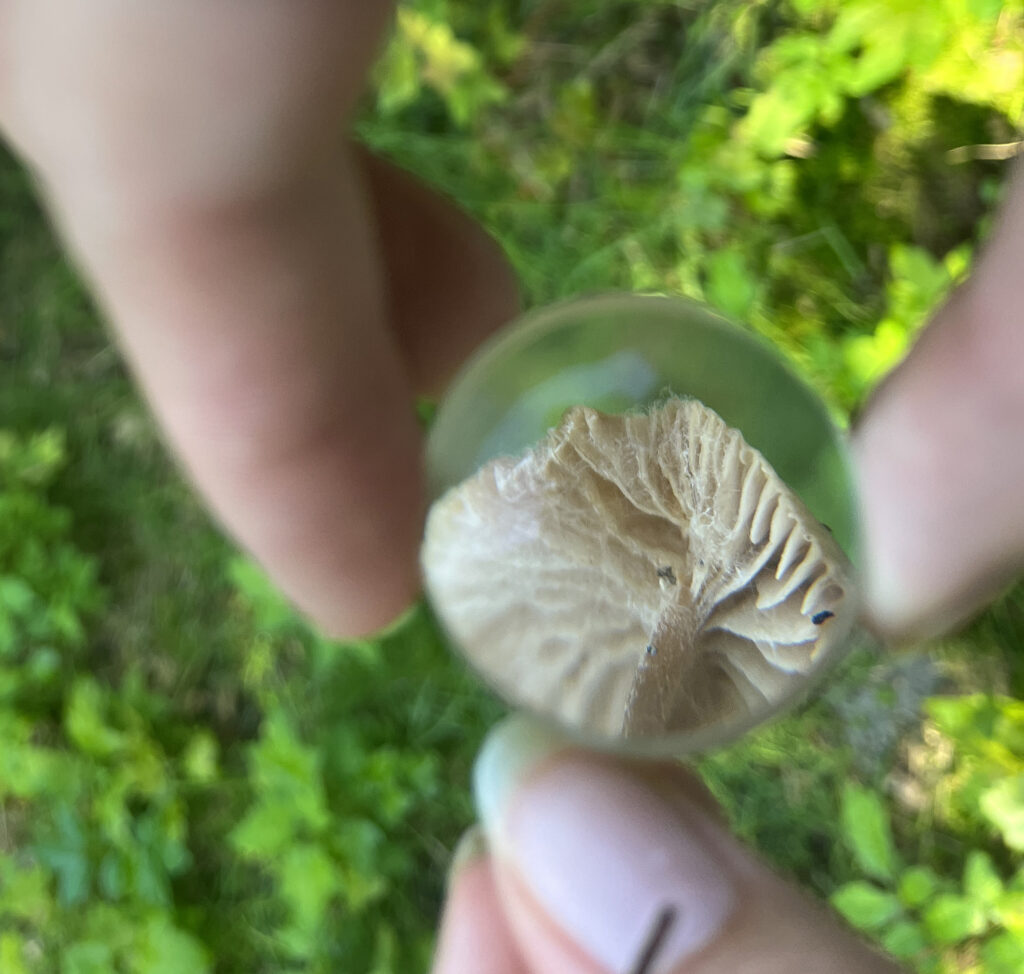
Shirley Niemans is a member of the Center for Creative Technology at HKU, Shirley Niemans contributes to developing material experimentation spaces and expanding HKU’s biolab, enriching the Creative Technology curriculum. After earning a BA in Arts and Music from KABK/Royal Conservatory and an MA in New Media from Utrecht University, Shirley worked as a sound, video, and performance artist, curated new media programs, and co-edited research on search engine politics. She developed and is leading Lab Pastoe, a new experimental space for materials research and crossovers between techniques and currently works on the redevelopment of the HKU Biolab.
Kas Houthuijs is a researcher and educator with a background in neurobiology and biomedical sciences. He was the freelance coordinator of BioHack Academy at Waag and contributed to projects within the European Hybrid Lab Network, collaborating with the Open Wetlab. Passionate about education, he has taught at the University of Amsterdam, Vrije Universiteit Amsterdam and is currently teaching at the HKU and WdKA where he works on the intersections of science, technology and design by fostering interdisciplinary learning and innovation.
Honey Jones-Hughes is an artist specializing in social practice and design thinking, using collaborative actions to drive real-time change. Working across media, such as documentary video, games, interviews, workshops, and publications, she curates snapshots of lives, cities, and communities at specific moments in time. Her co-created projects explore social issues like urban renewal, climate anxiety, and food sovereignty, encouraging critical reflection on our daily lives. Since 2024, Honey has been an instructor at the Living Station Lab at the WdKA, where she continues to engage with participatory art and interdisciplinary learning.
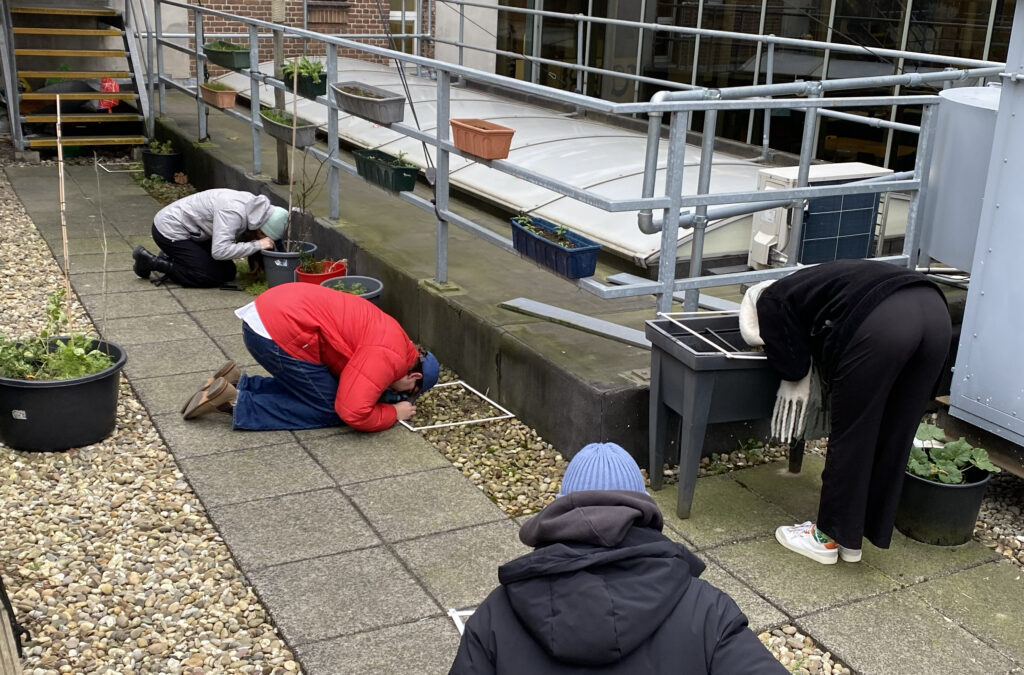
2G. Wild pedagogies: being at home in the world
The outdoors as educational setting and starting point of creative practice is a powerful force in the exploration of regenerative practice. The experience of embeddedness in a certain place, of being at home in a natural environment, can open students to a sense of wonder and a felt sense of interconnection. In this session we’ll explore situated learning as a method for fostering students’ sense of being at home in the world, making the relationship with place and environment central to a regenerative creative practice. This session will take place partly outdoors. Please check the weather conditions and dress accordingly.
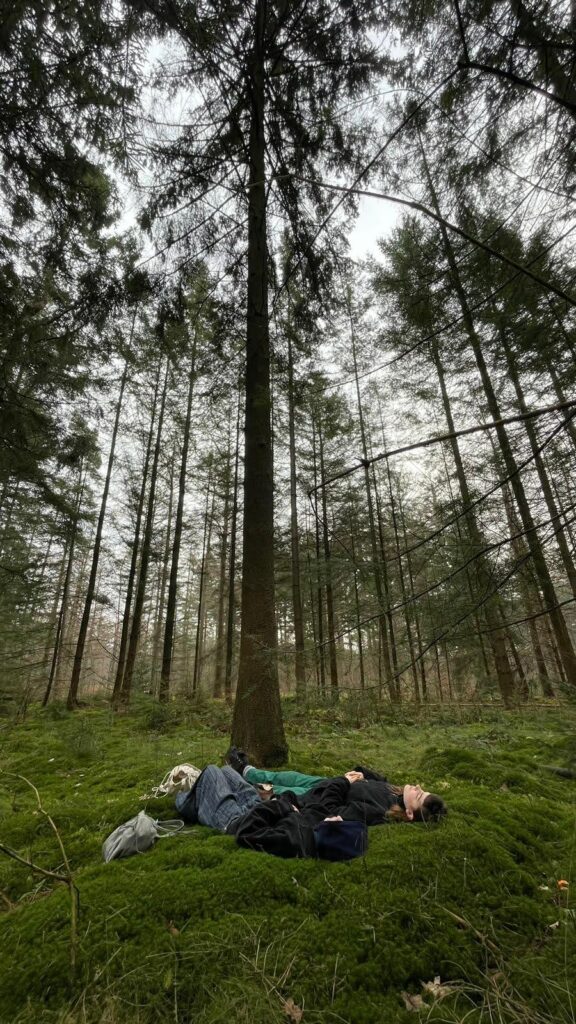
Annemarie Piscaer is a PhD candidate in the Doctoral Program at KU Leuven, as well as a designer, researcher and lecturer at CARADT, St. Joost. Fascinated by dust, both as air pollution and as a tangible consequence of human choices, she investigates the systems that drive these decisions. Through materials and craftsmanship, her work seeks to unravel and illuminate these complex dynamics.
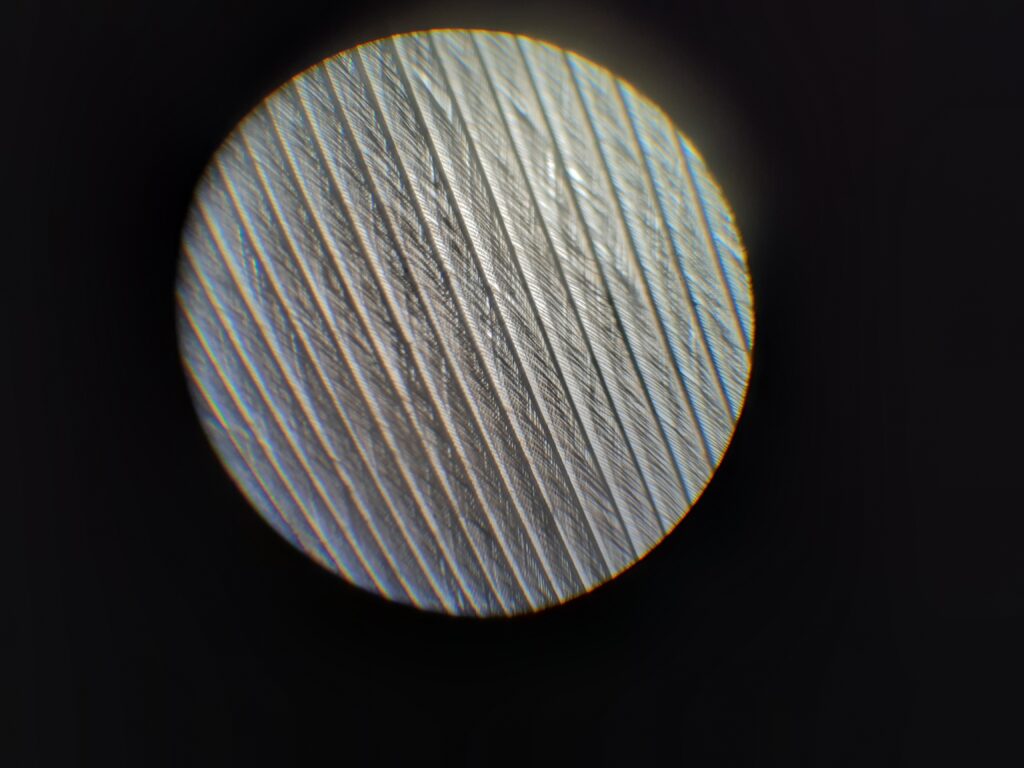
Ruben Jacobs work focuses on exploring the deep connection between humans and nature. He invites others to experience the necessity and beauty of ecological thinking as a lecturer at HKU, as nature guide, and in his new book Waar de bijen slapen in 2025.
Moderator: Anke Jongejan